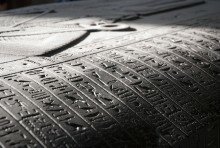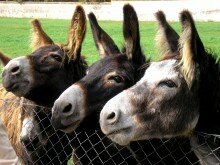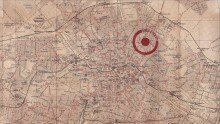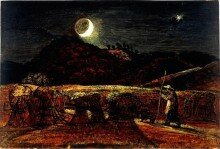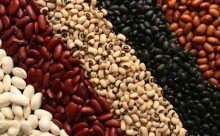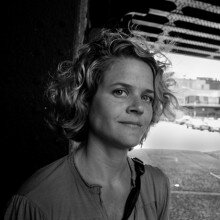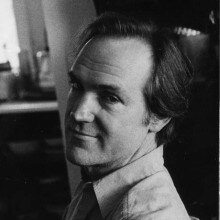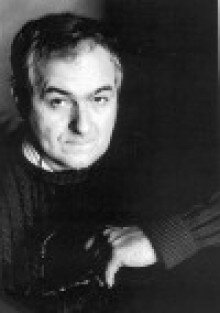
Milo De Angelis was born in Milan where he currently lives and works.
De Angelis made his debut at the very young age of 25 with the collection Somiglianze (Resemblances), which was destined to mark a turning point in contemporary Italian poetry because it hovered between philosophical argument inspired by Heideggerian existentialism and intimate, almost confessional, reflection. For this reason numerous critics have spoken of neo-hermetism, although this label seems to be rather restrictive and doesn’t take into account the enormous complexity of themes and of De Angelis’ rhetorical poetics.
De Angelis' very particular style is based on two things, the first being a masterly alternation of different linguistic registers (high, colloquial, philosophical, technical, in which a first person narrative is interspliced with fragments of dialogue). The second is the predominance of metonym over metaphor so as to create a perennial sliding of the image of reference. This style becomes even more obsure and cryptically withdrawn in Millimetri (1983). In his successive collections, Terra del viso (1985), Distante un padre (1989) and Biografia sommaria (1999), De Angelis seems to want to return to the exploration of the reservoir of a memory that is only partially biographical (he refers especially to the father figure). Among the recurring themes in his poetry one finds illness, the metropolitan Milanese ambience, and sport seen not only as physical activity (in his youth De Angelis was quite the athlete) but as a key towards understanding his own and other people’s existence. Ultimately, his vision of reality oscillates between an almost ‘biological’ materialism and an impulse towards human redemption despite its impracticability and obsolescence.
In the course of his career, De Angelis also published a narrative text halfway between fable and short story (La corsa dei mantelli, 1979) and a collection of essays and reflections (Poesia e destino, 1982), in addition to dedicating himself from 1977-1979 to founding and editing the magazine Il Niebo. He has translated works from Latin and French: Baudelaire, Blanchot, Lucretius, and Virgil, amongst others,. He himself has been translated into English and French.
The poems presented here are from his latest collection of poetry, Tema dell’addio (Farewell Theme, 2005), one of the highest points of his poetic production. The premature death of his wife constitutes the point of departure for this difficult “lyrical biography” in which it is possible to trace decisive stages of her terrible sickness through a collective and cumulative rather than a single reading of the poems in the collection. He provides an almost backwards reconstruction of the events. The elegiac tone often gives way to the evocative, meditative and reflexive one typical of his previous production, creating a bond and a strong formal (and thematic) consistency between the poetics of the past and those of the present.
Bibliography
Poetry
Somiglianze (Resemblances), Guanda, Parma, 1975 (new ed. 1990)
Millimetri (Millimetres), Einaudi, Torino, 1983
Terra del viso (Face's Land), Mondadori, Milano, 1985
Distante un padre (An Aloof Father), Mondadori, Milano, 1989
Biografia sommaria (Concise Biography), Mondadori, Milano, 1998
Dove eravamo già stati. Poesie 1970-2001 (Where We Had Already Been. Poems 1970-2001), Donzelli, Rome, 2001
Tema dell’addio (Farewell Theme), Mondadori, Milano, 2005 (Viareggio Prize, San Pellegrino Prize, Cattafi Prize)
Fiction
La corsa dei mantelli (The Cloaks Race), Guanda, Parma, 1979
Essays and Non Fiction
Poesia e destino (Poetry and Fate), Cappelli, Bologna, 1982
Translations of De Angelis’s works into other languages
Terre du visage, ed. I. N. Para, Chopard, Paris, 1988.
Ce que je raconte aux chaises, ed. A. Pilia e J. Demarcq, Luzarches, Les Cahiers de Royaumont, 1989.
Finite Intuition. Selected Poetry and Prose, ed. Lawrence Venuti, Sun and Moon, New York, 1995.
Between the Blast Furnaces and the Dizziness: A Selection of Poems 1970-1999, translated by Emanuel Di Pasquale, New York, Chelsea Editions, 2003.



